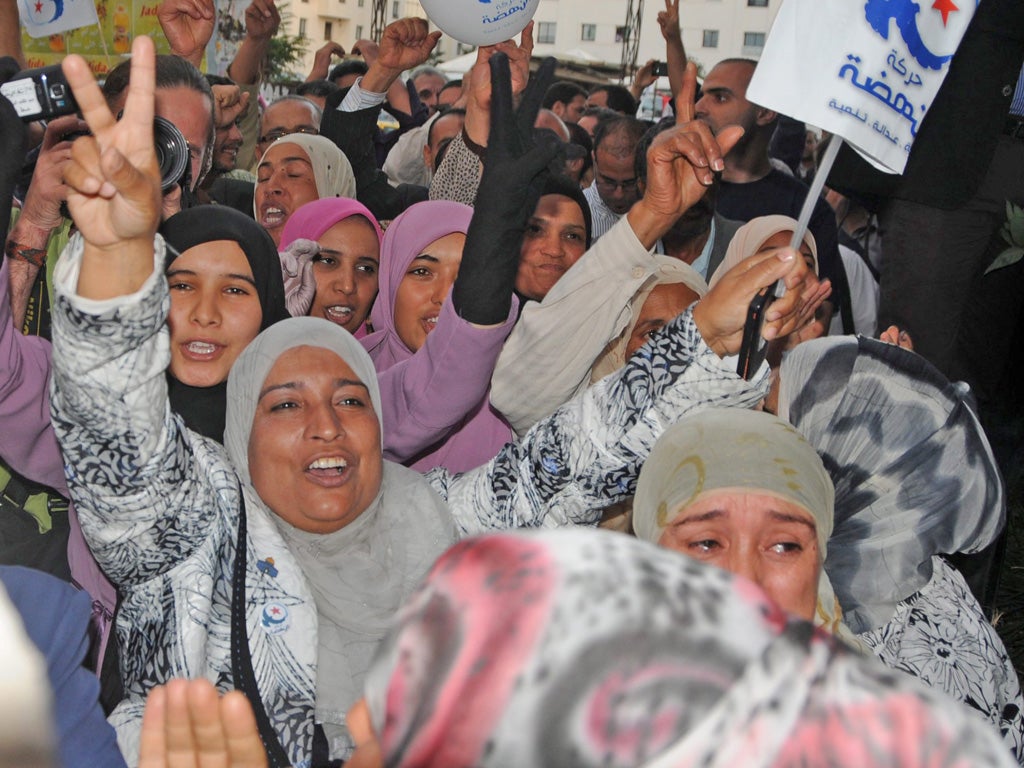On verge of victory, Tunisia's Islamists commit to 'Western-style democracy'

Tunisia's moderate Islamist party, set to win the first democratic election born of the Arab Spring, reached out yesterday to centre-leftists, vowing to uphold liberal values and form a coalition government with secular parties.
Partial results released supported the Ennahda party's claims that it won at least 40 percent of the seats in a 217-member assembly. Secular, centre-left parties shared most of the rest of the votes from Sunday's poll.
Said Ferjani, of Ennahda's political bureau, said the priorities of the coalition are to put in place a democratic system that would "safeguard minorities" and also to deliver employment and education. "The old suspicion about everything related to Islam must stop," said Mr Ferjani. "We are here to serve the people. We made it clear in our programme that we are going to implement a democratic, Western-style system in Tunisia."
Amidst Western fears over Islamists, some Tunisians have stressed that the party does not have a majority and will be kept in check, both by Ennahda's stated intention to function as a moderate, coalition party, and by the secular parties that will be part of the assembly.
Hamadi Redissi, political science professor at Tunis el Manar university, said that Ennahda's vote should translate into about 60 of the 217 seats in the new assembly, which will be mandated to draft the new constitution and set a date for another round of elections within a year.
"The composition of the assembly will not allow Ennahda to dominate," he said. "And they have no interest in being dominant, because there are big challenges, like the economy and the unemployed facing the new government. They don't want people to say, by the time of the next elections, that the Islamists can't govern."
Moncef Marzouki, whose secularist Congress for the Republic party conceded defeat after early polls placed them second, said he was ready to work with Ennahda.
"I am for a coalition government," Mr Marzouki told Reuters. "We wish to have a national government as wide as possible. The political class should be worthy of the Tunisian people, which has given an exceptional lesson for the world."
Ennahda officials named Mr Marzouki's party and the left-wing secularist Ettakatol party as favoured coalition partners. Another secularist party, the Progressive Democrats, rejected a coalition.
Join our commenting forum
Join thought-provoking conversations, follow other Independent readers and see their replies
Comments